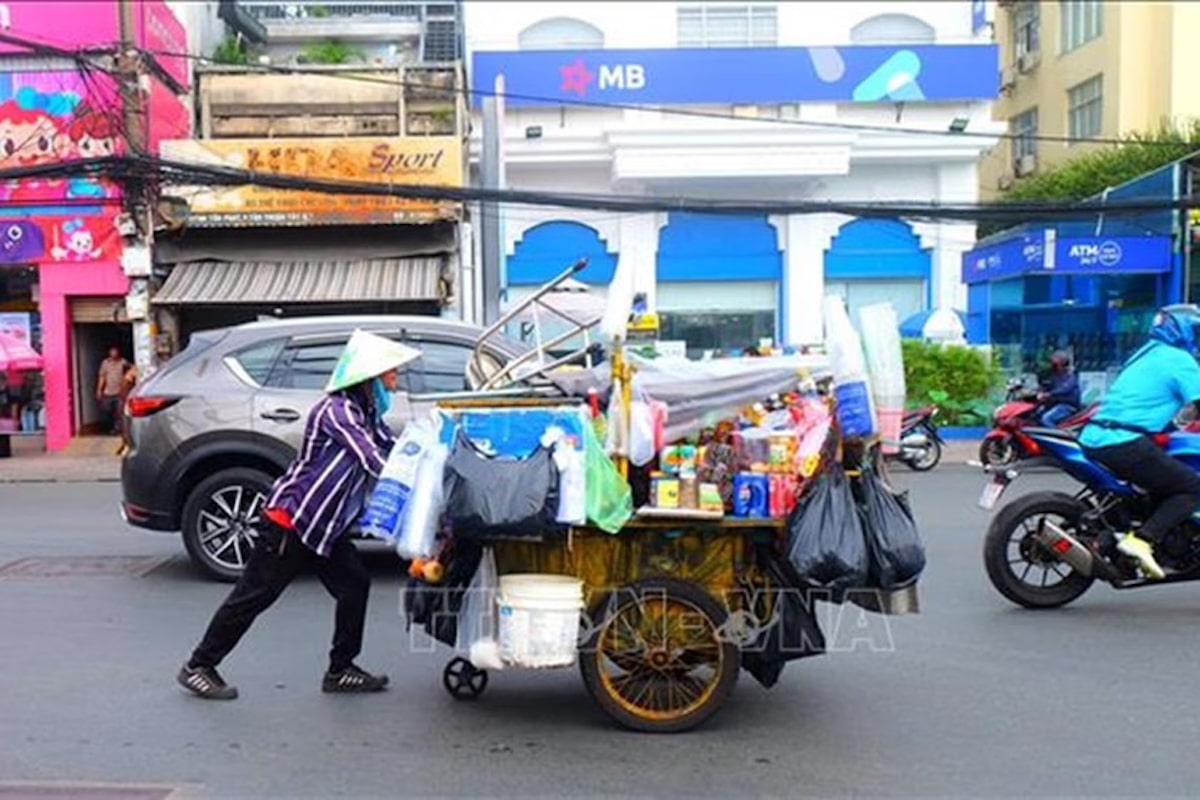Heat in Vietnam’s Ho Chi Minh City raises street food safety concerns

As the heat begins to intensify, carts and street vendors crowd school gates or spill over onto the streets, posing challenges to street food management.PHOTO: VIETNAM NEWS/ASIA NEWS NETWORK
HO CHI MINH — Ho Chi Minh City has recently recorded multiple cases of food poisoning, causing dozens of students to be hospitalized and raising concerns about food safety during the hot season.
As the heat begins to intensify, carts and street vendors crowd school gates or spill over onto the streets, posing challenges to street food management.
Mr Nguyen Van Quyen, a street vendor near a school in D8 Street in Phu My Ward, District 7, said that to save money, he often buys ingredients at the market and processes them the night before, or early in the morning.
READ: Ho Chi Minh food finds: Tasty pho, banh mi and Vietnamese ‘halo-halo’
Similarly, Mr Huynh Ngọc Hoa, who sells fried balls at the school gate in Tan Binh District, said: “I buy ingredients from local markets near my house. As to whether the food is traceable, I am not sure.”
Ms Nguyen Thị Thanh Kien, the mother of a student at a school in District 3, said that normally, she will wake up early to prepare a healthy breakfast for the whole family.
However, on busy days, or when she wants her children to try something new, she allows them to buy their own breakfast outside of their school.
Although she still gives them permission to do so, she worries about the quality of such foods.
Many parents say that they do not feel very assured about the quality of the food sold around schools, especially as many students have suffered food poisoning, vomiting or diarrhea after eating things they have bought at school gates.
READ: The heatwave baking parts of Asia
To minimise the risk of contaminated food entering the school, school boards and teachers remind students to limit the consumption of food of unknown origin, but find it difficult to manage the street vendors.
Such vendors work everywhere, especially in inner-city districts, export processing zones, industrial parks or densely populated areas in the city.
Ms Tran Ngọc Thuy, an office worker in District 4, said that because she lives alone and is reluctant to cook in the morning, she often prioritizes pre-prepared, easy-to-buy and easy-to-carry dishes on the way to work.
Experts say the convenience of mobile eateries has led to them becoming more popular in busy urban areas. However, the potential risks in terms of food safety is high.
As the city heats up, ensuring safety from the processing, preservation and storage stages, through to the delivery of the food to consumers, is of major concern not only for consumers, but also for state management agencies.
According to Mr Nguyen Thị Lam Phuong, from the city’s Department of Food Safety, food gets easily spoiled in the hot season, especially the street food sold by vendors around school gates.
As the street vendors are mobile and move easily from one location to another, they are difficult to control and trace. Not only do they not ensure quality control under the hot sun, but they also risk contamination when stopping, parking and selling in unsanitary places.
To protect the health of consumers, especially students, after the recent food poisoning cases, specialized forces in Thu Duc City and districts of the city have stepped up inspections at areas with many mobile eateries and densely populated residential areas, to correct vendors who encroach on pavements or do business in inappropriate areas.
These forces also actively encourage businesses to wear gloves, masks and use food storage cabinets to limit the risk of bacterial contamination when delivering food to consumers.
Over the long term, the Department of Food Safety said it will continue to implement food monitoring programs in raw material areas, take samples to monitor goods at markets and promote food traceability programs at wholesale markets.
The department will also encourage street vendors to use food with clear origins and preservation methods, and strictly handle violations to prevent unsafe food from entering the market.